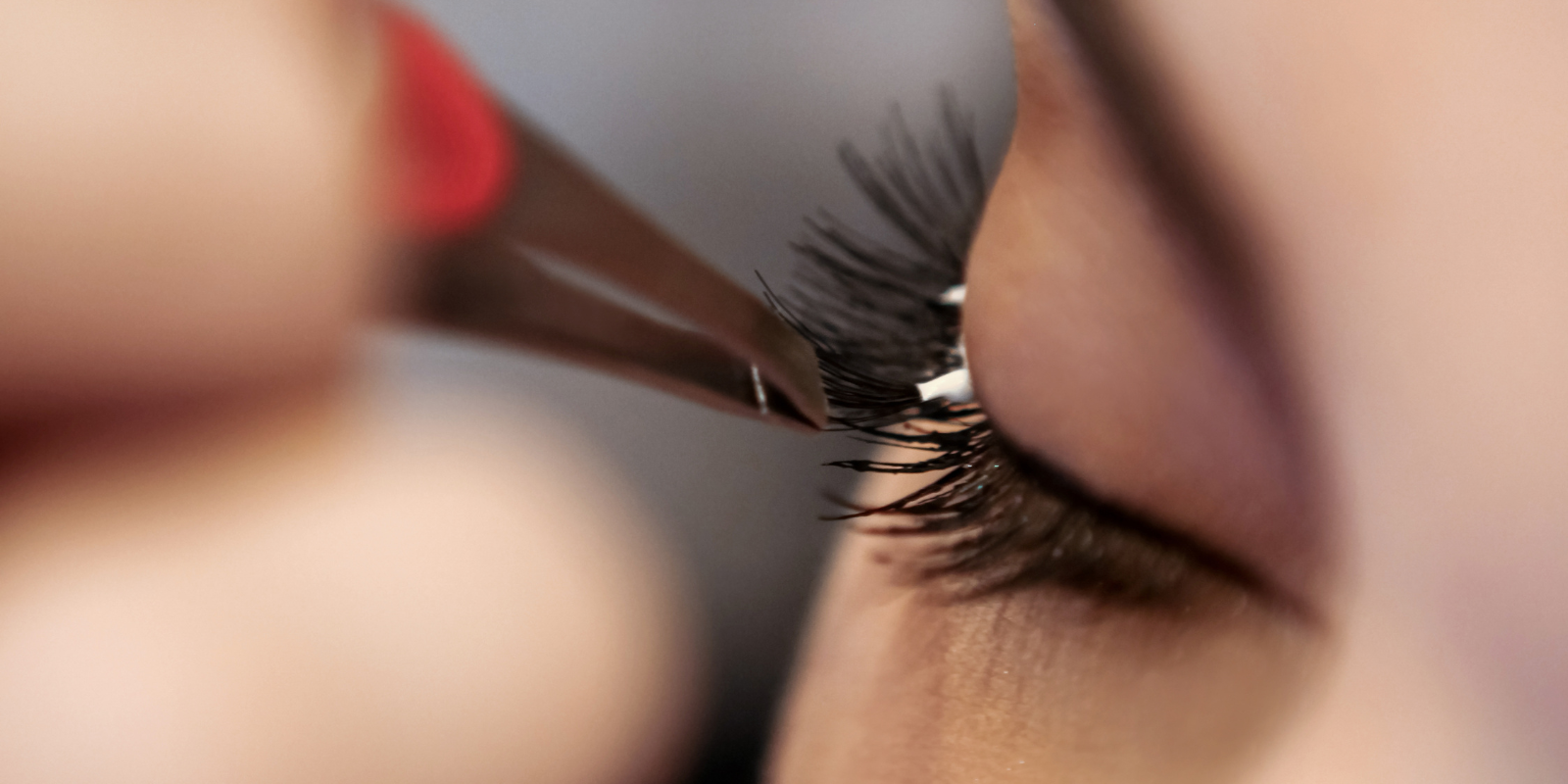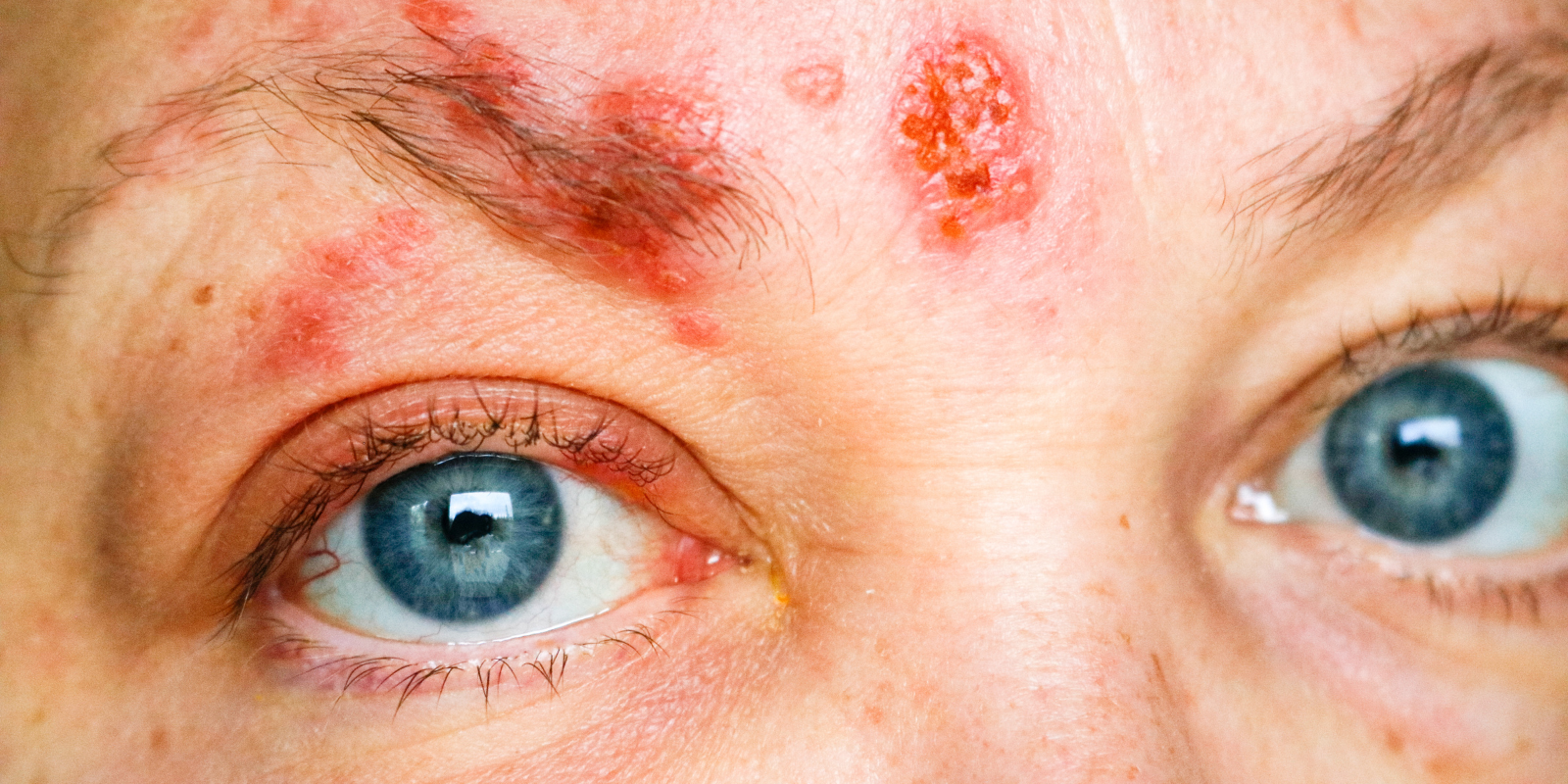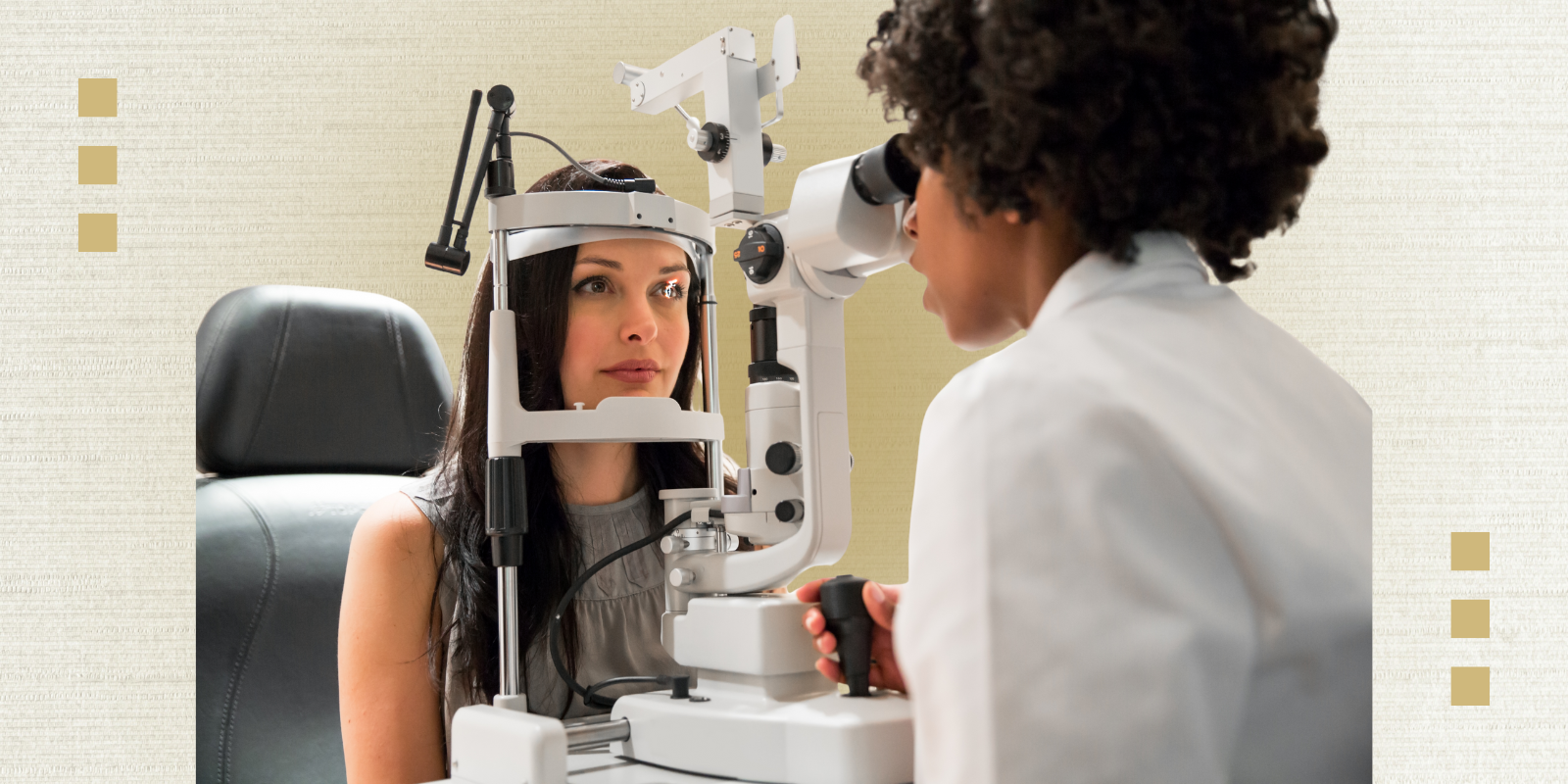There are so many cosmetics and beauty trends that involve the eyes. What are you seeing end up in your clinic most often?
I often see people who use cosmetic contact lenses. These are the contacts that are typically used to change the color of the eye. Sometimes the dye on the lens is toxic to the surface of the eye. A lot of the time these contacts are not properly fit to the wearer. This can cause ocular surface irritation. These lenses can prevent oxygen from getting to the surface and this is bad for the cornea. I’ve also seen corneal ulcers result from these contacts.
Second, I see many patients who have bad dry eye disease and eye makeup can make those symptoms worse. If you wear makeup and don’t remove it well enough, you can expose yourself to allergens and increase inflammation, and that can cause or exacerbate an existing problem.
Many patients don’t realize they have dry eye disease. They’ll complain of symptoms such as blurry vision, irritation, a gritty feeling in the eyes.
How important is removing eye makeup at the end of the day?
Good hygiene is so important. If you don’t remove that eye makeup, it can build up and cause problems. Products that are not removed may fall into the eye and cause irritation or scratch the surface.
A lot of people put eyeliner or other products on that little shelf on your lower eyelid, between your eyeball and eyelashes. This is where your glands that lubricate the eye are, and blocking those can contribute to dry eye. Avoiding that area and cleaning it well may help alleviate some of those dry eye symptoms.
How you remove your makeup depends on the cosmetic products you’re using. If you’re using a waterproof mascara, an eye makeup remover might not be enough. You really want something that’s targeted but gentle. A fragrance-free face wash or a fragrance-free baby shampoo are both great for washing eyelashes. Using a wash that suds can help remove allergens that can be more difficult to get rid of. Most often a makeup wipe is not enough to get the job done.
Speaking of hygiene, most of us are probably guilty of keeping cosmetic products past their expiration dates. Can using those products be bad for eyes?
We should be mindful of how old our eye makeup is, definitely. Mascara and other cosmetics that are more than three to six months old can collect allergens that irritate the eye. Two to four times per year you should probably replace those eye makeup items to ensure that they aren’t introducing any unnecessary bacteria or allergens to the eye.
Semi-permanent cosmetic applications, such as eye lash tints, extensions, and cosmetic tattoos, have increasingly become popular. If people engage in these practices, how can the best avoid health hazards?
A lot of cosmetics and related trends are not regulated, so that’s important to remember.
A host of things can go wrong when you tattoo around your eye or adhere objects to your lashes, but if you are really inclined to do something like this, go to a reputable studio to have it done, ask about the ingredients in the products they use, and ask about cleanliness of the tools that they're using.
What else do you want people to know about cosmetics and their ocular health?
It’s important for patients who have other eye diseases to be honest with their ophthalmologist about their cosmetics routines because that can influence the choices we make for care. If you’re seeing a dry eye specialist, bring in your products and discuss them. We may be able to help determine if they’re contributing to symptoms.
Just because beauty is marketed as “clean” doesn’t necessarily mean it won’t cause you any ocular issues. We should consider the ingredients in the products we use, but being organic or natural doesn’t solve all of the problems that come along with wearing makeup around the eye.
Finally, people should also be mindful about skincare around the eyes as well. Retinol products to address aging have become popular in undereye products and that can be harsh to the eyes and interfere with meibomian glands, which secrete the oil onto the surface.
Overall, it’s best to pay attention to any ocular symptoms you might have. Even if it seems minor, it could be a result of eye makeup or the products you’re using on your face.





